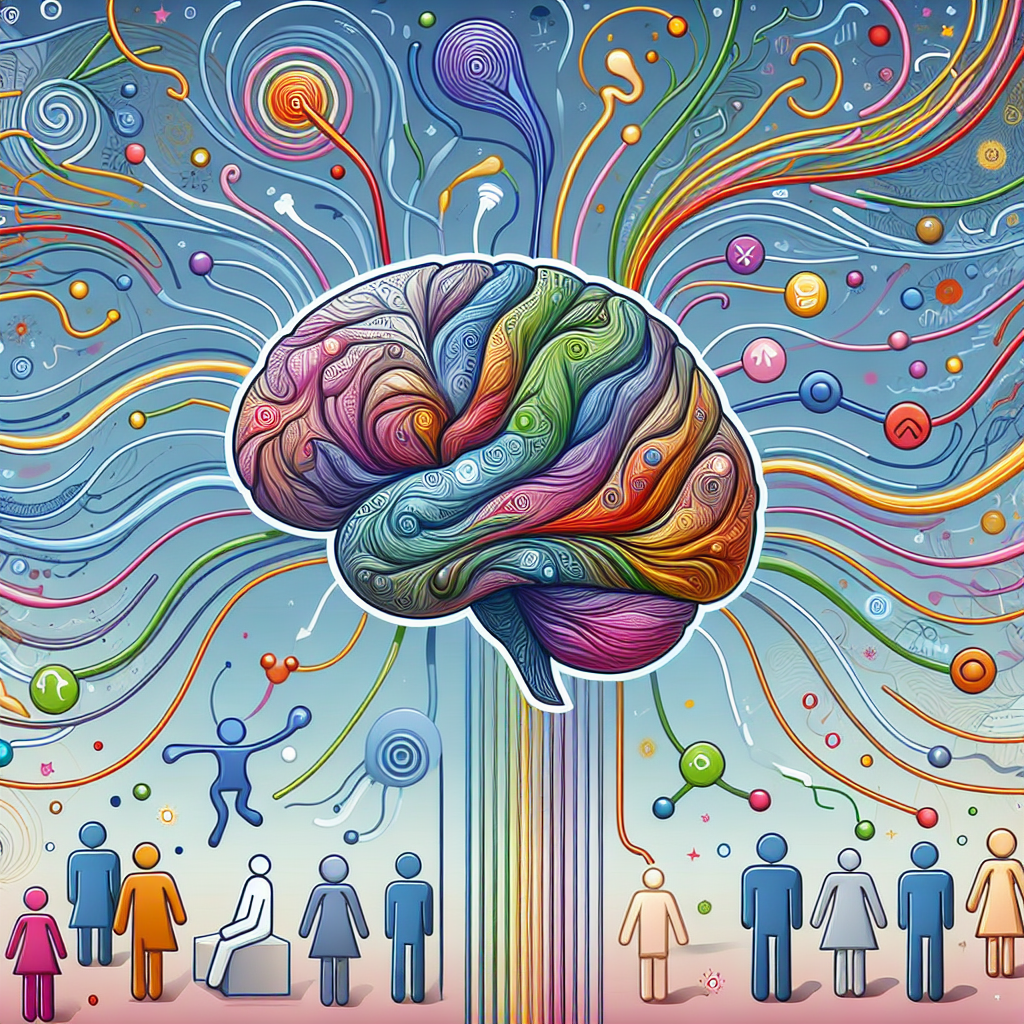Exploring the Influence of Emotions on Human Behavior: A Comprehensive Analysis
Emotions play a crucial role in influencing human behavior. They are the driving force behind our decisions, actions, and reactions in various situations. Our emotions are complex and can have a profound impact on how we interact with others, make choices, and navigate the world around us. In this article, we will explore the influence of emotions on human behavior and delve into the mechanisms behind this intricate relationship.
Understanding Emotions
Emotions are complex psychological and physiological states that are triggered in response to internal and external stimuli. They can be positive, such as happiness, joy, and love, or negative, such as anger, fear, and sadness. Emotions serve as a guidance system that helps us navigate our environment and make sense of our experiences.
The influence of emotions on human behavior can be traced back to various psychological theories, including the James-Lange theory, the Cannon-Bard theory, and the Schachter-Singer theory. These theories highlight the intricate ways in which emotions impact our thoughts, behaviors, and physiological responses.
Emotions can influence our behavior in several ways. They can motivate and drive us to take action, shape our decision-making processes, influence our social interactions, and impact our cognitive abilities. Emotions can also impact our physical health, as chronic stress and negative emotions have been linked to various health issues, including heart disease, obesity, and depression.
The Role of Emotions in Decision Making
Emotions play a significant role in decision making. Research has shown that our emotions can influence the choices we make, the risks we take, and the outcomes of our decisions. Emotions can serve as a guidepost that helps us assess the potential risks and rewards of a given situation.
For example, when faced with a risky decision, such as starting a new business or investing in the stock market, our emotions can help us evaluate the potential benefits and drawbacks of our choices. Positive emotions, such as excitement and hope, can motivate us to take risks and pursue new opportunities. On the other hand, negative emotions, such as fear and anxiety, can signal potential dangers and prompt us to proceed with caution.
Emotions can also influence our decision-making processes through cognitive biases and heuristics. Cognitive biases are mental shortcuts that our brains use to make quick judgments and decisions. These biases can be influenced by our emotions, leading us to make irrational or impulsive choices.
The Role of Emotions in Social Interactions
Emotions also play a crucial role in shaping our social interactions. Our emotions can impact how we perceive others, how we communicate, and how we build relationships. Emotions are contagious, meaning that we can easily pick up on the emotional cues of others and mirror their feelings.
For example, if we encounter a stranger who is smiling and friendly, we are more likely to respond in kind and feel positive towards them. Conversely, if we encounter a stranger who is frowning and aloof, we may be more hesitant to engage with them and feel negative towards them.
Emotions can also influence our ability to empathize with others. Empathy is the ability to understand and share the feelings of others, and it plays a crucial role in building emotional connections and fostering cooperation. When we empathize with others, we are more likely to engage in prosocial behaviors, such as helping, comforting, and supporting others.
The Role of Emotions in Cognitive Abilities
Emotions can also impact our cognitive abilities, such as memory, attention, and problem-solving skills. Research has shown that our emotional state can influence how well we remember information, how well we concentrate on tasks, and how effectively we solve problems.
For example, when we are in a positive emotional state, our memory and attention tend to be heightened, leading to improved cognitive performance. On the other hand, when we are in a negative emotional state, our cognitive abilities may be impaired, making it more difficult to focus, remember information, and think critically.
Emotions can also influence our creativity and innovation. Positive emotions can enhance our creativity by broadening our perspective, fostering flexibility, and promoting exploration. Negative emotions, on the other hand, can narrow our focus and inhibit our creativity by triggering a fight-or-flight response.
FAQs
Q: How do emotions impact our physical health?
A: Emotions can impact our physical health in various ways. Chronic stress and negative emotions have been linked to various health issues, including heart disease, obesity, and depression. Positive emotions, on the other hand, have been associated with improved cardiovascular health, reduced inflammation, and enhanced immune function.
Q: Can emotions be controlled?
A: While we cannot control our emotions entirely, we can learn to regulate them effectively. Emotion regulation strategies, such as mindfulness meditation, deep breathing, and cognitive reappraisal, can help us manage our emotions and respond more adaptively to challenging situations.
Q: How do emotions influence our relationships?
A: Emotions play a crucial role in shaping our relationships with others. Our emotions can impact how we perceive others, how we communicate, and how we build emotional connections. Empathy, in particular, plays a significant role in fostering close and meaningful relationships.
In conclusion, emotions are a fundamental aspect of human experience that influence our thoughts, behaviors, and interactions with the world. Understanding the influence of emotions on human behavior can help us navigate our emotions more effectively, make better decisions, and build stronger relationships. By exploring the intricate ways in which emotions impact our lives, we can gain a deeper understanding of ourselves and those around us.




Leave A Comment